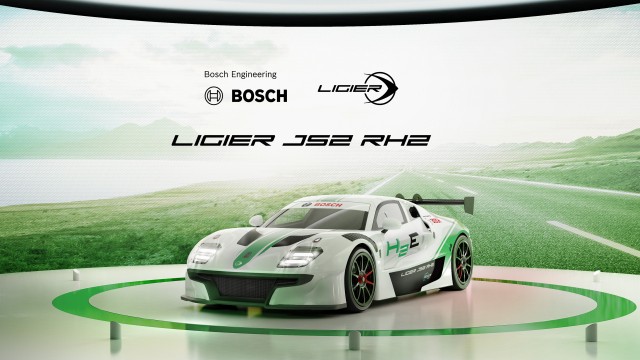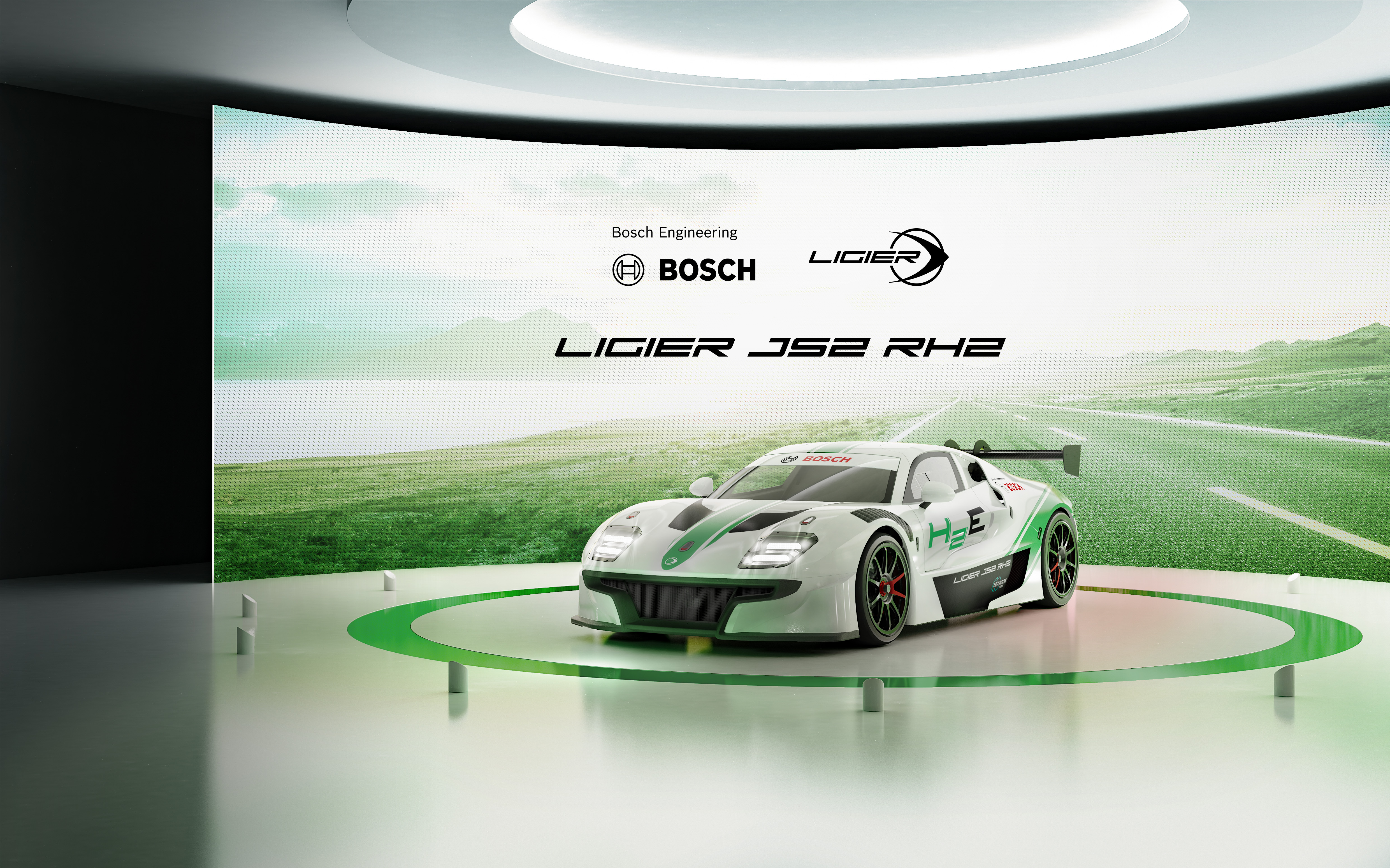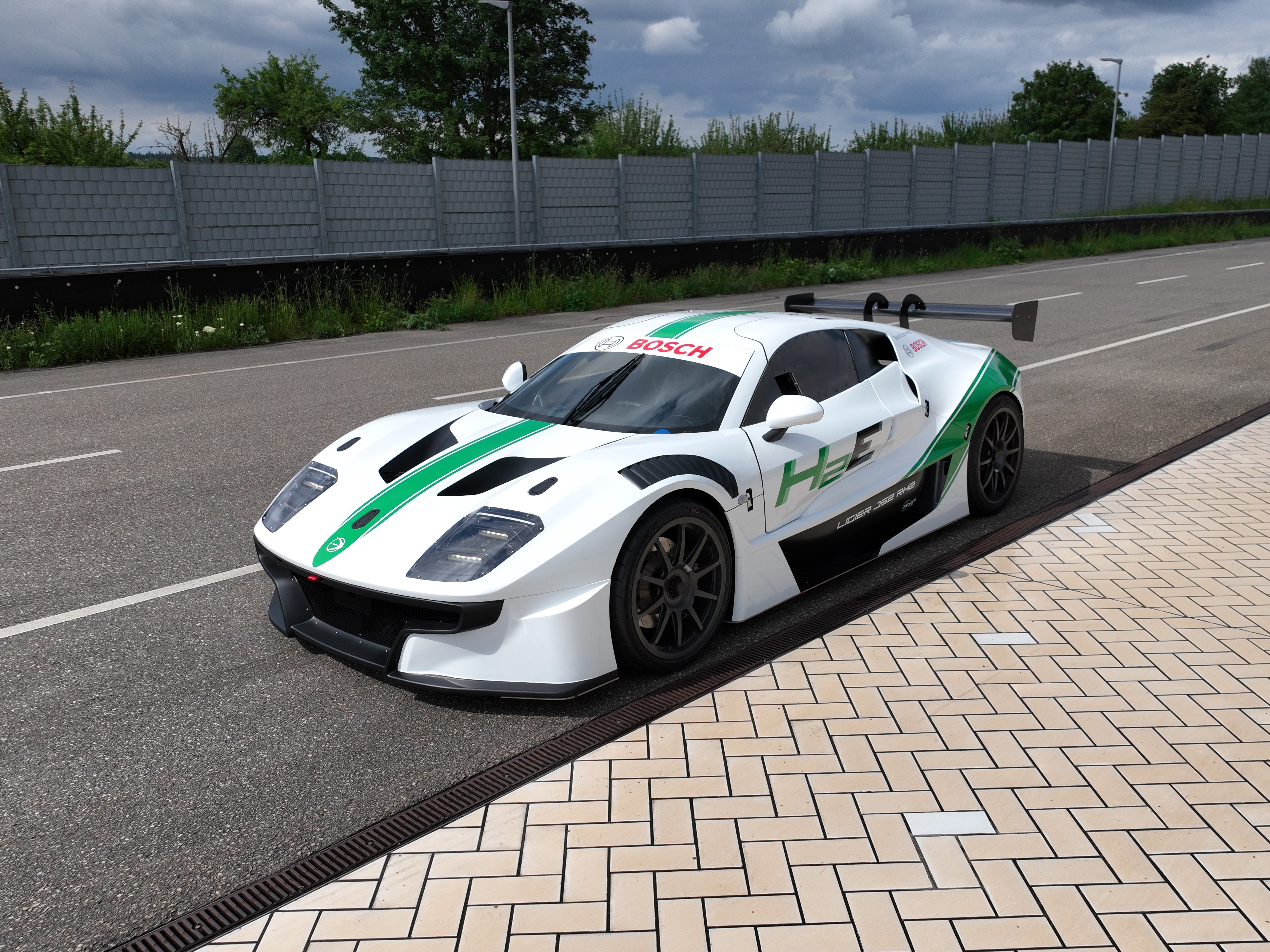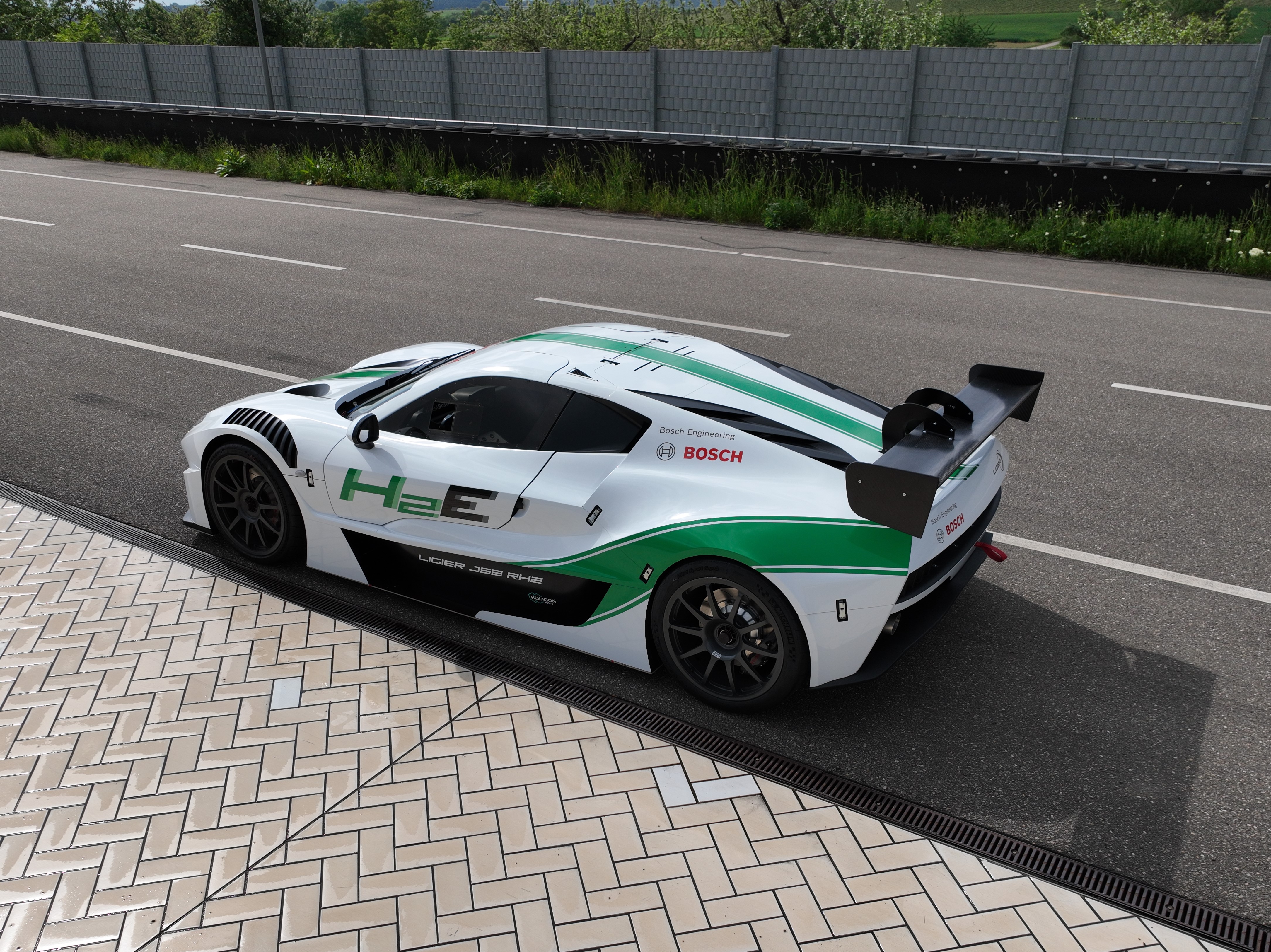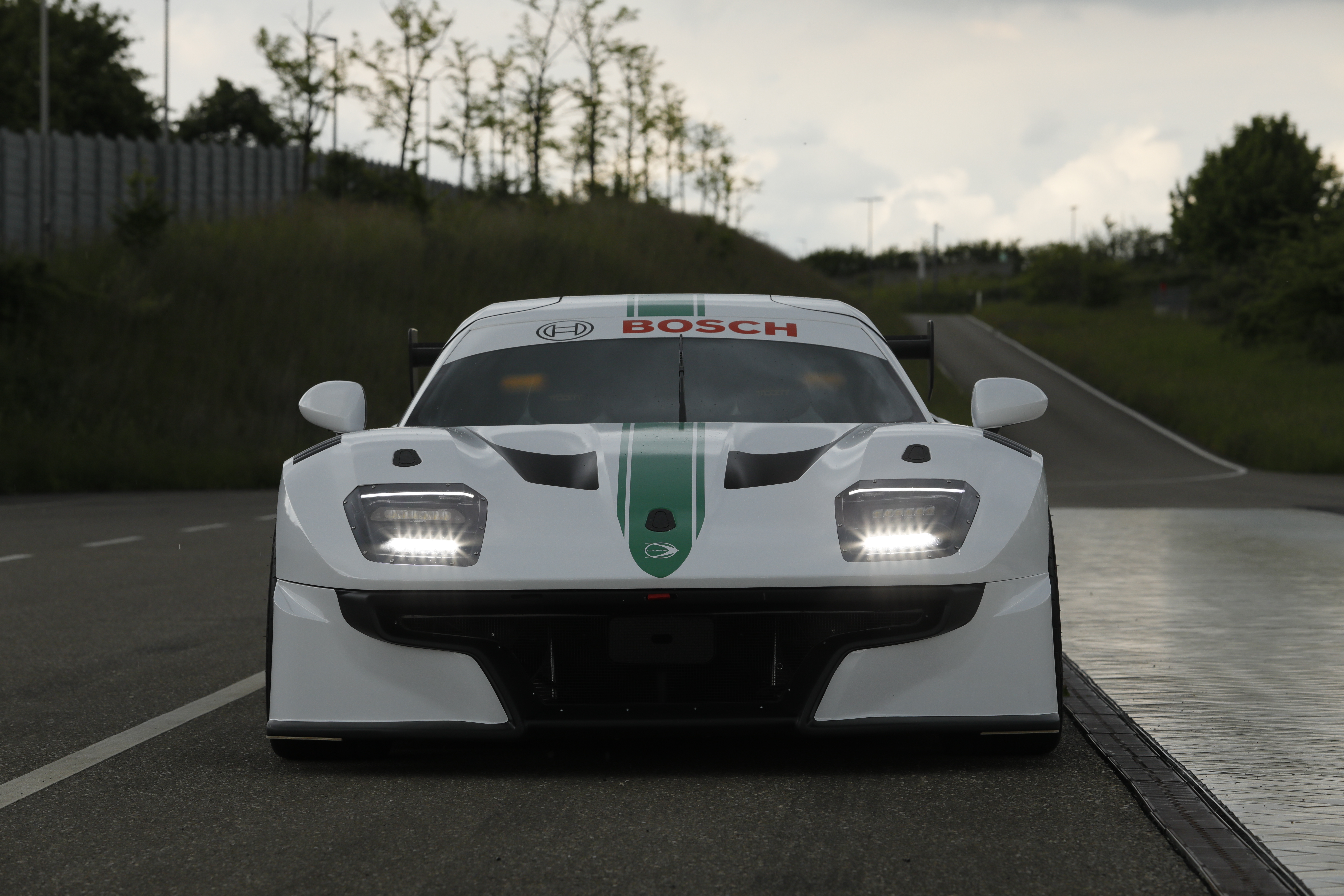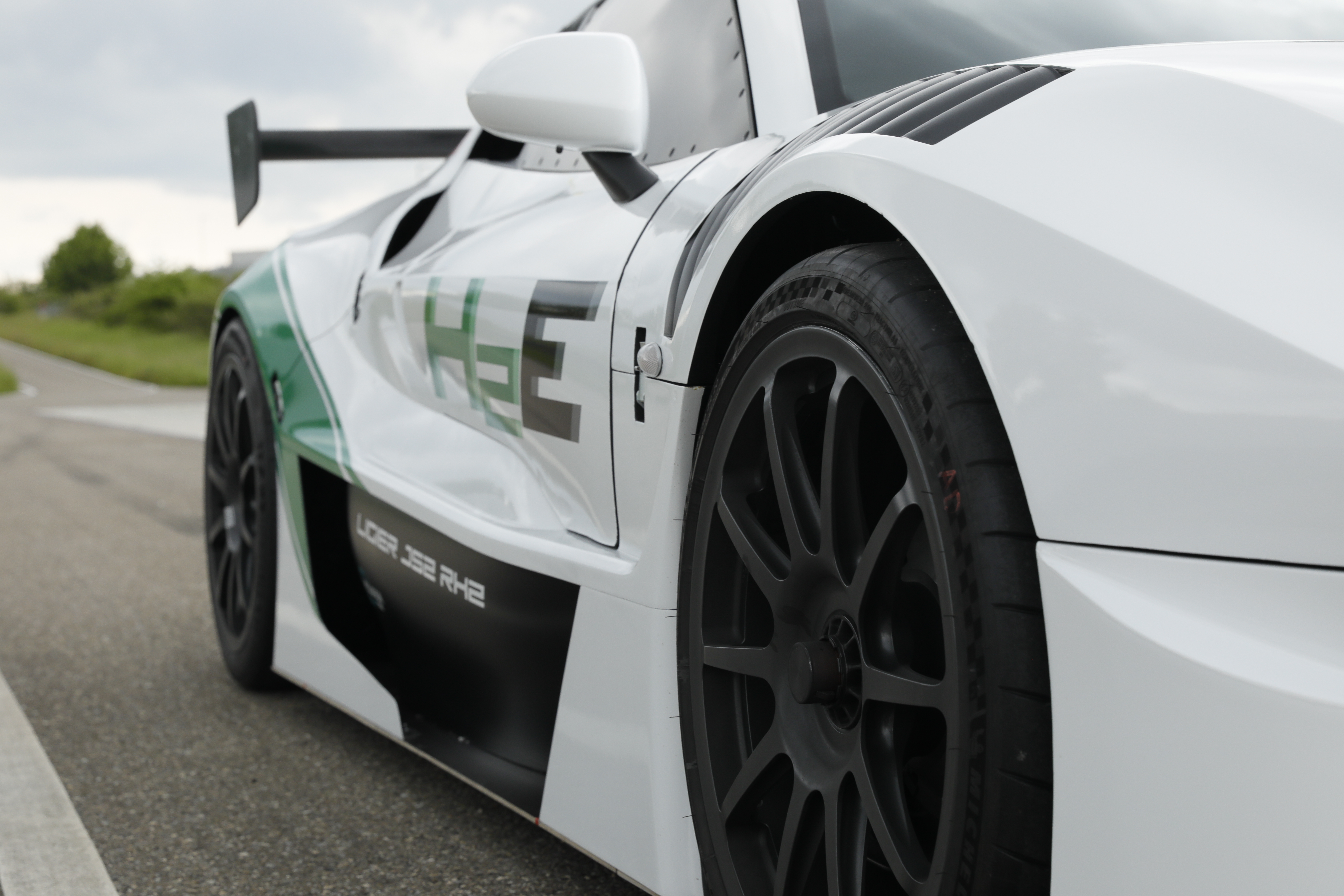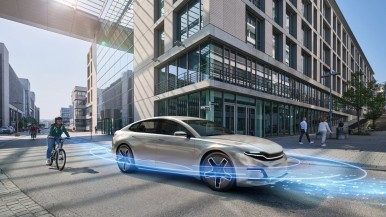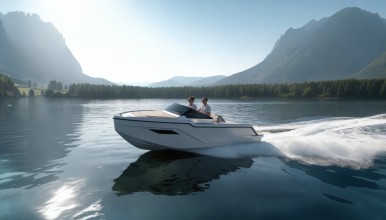Abstatt (Germany), Magny-Cours (France) – Just a few months into a joint innovation project, experts from Bosch Engineering and Ligier Automotive have built a high-performance vehicle with a hydrogen engine. The demonstrator is based on the Ligier JS2 R race car, which was modified for hydrogen operation. With this innovation vehicle, both companies demonstrate the potential that alternative, climate-friendly drive systems have for high-performance applications such as motorsports. The Ligier JS2 RH2 was officially presented to the public for the first time today as part of the 100th anniversary of the 24 Hours of Le Mans. “Hydrogen engines offer a huge potential for high-performance applications, especially in motorsports. By constructing the demonstration vehicle, we illustrate our many years of expertise as an engineering service provider and, in particular, our competence in the complex environment of hydrogen”, says Dr. Johannes-Jörg Rüger, president of Bosch Engineering GmbH. Jacques Nicolet, president of Ligier Automotive adds, “The Ligier JS2 RH2 shows that Bosch Engineering and Ligier Automotive are ready to tackle tomorrow’s challenges by offering innovative solutions to integrate new energies.” The Ligier JS2 RH2 has already been driven on test tracks in Germany and will be further developed and tested during the summer.
Contact person for press inquiries:
Bosch Engineering
Cornelia Dürr
Telefon: +49 7062 911-1986
E-mail: Cornelia.Duerr@de.bosch.com
Ligier Automotive
Elsa Nicolet
Telefon: + 33 (0) 6 16 36 77 30
E-mail: e.nicolet@ligierautomotive.com
Mobility is the largest Bosch Group business sector. It generated sales of 55.8 billion euros in 2024, and thus contributed around 62 percent of total sales. This makes the Bosch Group one of the leading mobility suppliers. Bosch Mobility pursues a vision of mobility that is safe, sustainable, and exciting. For its customers, the outcome is integrated mobility solutions. The business sector’s main areas of activity are electrification, software and services, semiconductors and sensors, vehicle computers, advanced driver assistance systems, systems for vehicle dynamics control, repair-shop concepts, as well as technology and services for the automotive aftermarket and fleets. Bosch is synonymous with important automotive innovations, such as electronic engine management, the ESP anti-skid system, and common-rail diesel technology.
About Bosch Engineering GmbH
Bosch Engineering GmbH is a wholly owned subsidiary of Robert Bosch GmbH and is head-quartered in Abstatt, Germany. As a systems development partner to the automotive industry since 1999, the company with its more than 3,300 associates offers development services for powertrains, safety and convenience systems, and electrical and electronic systems – from the original concept to series production. Specialized in electronics and software, it draws on Bosch’s proven large-scale series production technology to develop tailored solutions for a wide variety of applications in passenger cars, commercial vehicles, off-highway and recreational vehicles, and in rail applications, ships, and industry. Bosch Engineering GmbH also coordinates all the Bosch Group’s motorsports activities.
Additional information can be accessed at www.bosch-engineering.com.
Ligier Automotive
Ligier Automotive is a manufacturer based in France (Magny-Cours, Amilly) and in the US with Ligier Automotive North America (Denver, North Carolina) with around 100 associates. It offers one of the largest range of cars marketed under the same brand: from sports prototypes (Ligier JS P4, Ligier JS P3, Ligier JS P320, Ligier JS P2, Ligier JS P217, Ligier Nissan DPi), to single-seaters (Ligier JS F3, Ligier JS F4 and Ligier JS F422) and GT with the Ligier JS2 R. Since 2014, it built around 580 racing cars. Ligier Automotive is the first and unique car constructor since Ferrari in 1998 to have won the 24 Hours of Daytona, the 12 Hours of Sebring and Petit Le Mans the same year and the only French car constructor to have won the 24 Hours of Daytona. Ligier Automotive is also the preferred partner of major OEM vehicles manufacturers to design and produce their concept cars and special vehicles.
Additional information may be accessed on www.ligierautomotive.com/en/
The Bosch Group is a leading global supplier of technology and services. It employs roughly 412,000 associates worldwide (as of December 31, 2025). According to preliminary figures, the company generated sales of 91 billion euros in 2025. Its operations are divided into four business sectors: Mobility, Industrial Technology, Consumer Goods, and Energy and Building Technology. With its business activities, the company aims to use technology to help shape universal trends such as automation, electrification, digitalization, connectivity, and an orientation to sustainability. In this context, Bosch’s broad diversification across regions and industries strengthens its innovativeness and robustness. Bosch uses its proven expertise in sensor technology, software, and services to offer customers cross-domain solutions from a single source. It also applies its expertise in connectivity and artificial intelligence in order to develop and manufacture user-friendly, sustainable products. With technology that is “Invented for life,” Bosch wants to help improve quality of life and conserve natural resources. The Bosch Group comprises Robert Bosch GmbH and its roughly 490 subsidiary and regional companies in over 60 countries. Including sales and service partners, Bosch’s global manufacturing, engineering, and sales network covers nearly every country in the world. Bosch’s innovative strength is key to the company’s further development. At 136 locations across the globe, Bosch employs some 82,000 associates in research and development.
Additional information is available online at www.bosch.com, www.bosch-press.com.
